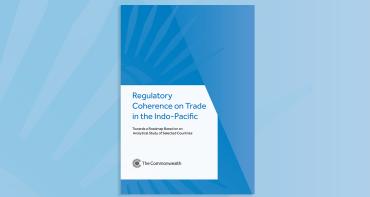Officials and experts from Commonwealth countries most vulnerable to climate change will meet in Sussex, near London, from 23 to 25 January 2011, to explore practical ways of accessing, managing and using funds to tackle the potentially devastating effects of changing global weather patterns.
The ‘Commonwealth High Level Meeting on Climate Finance’ is designed to build on outcomes of the Commonwealth leaders meeting in Port of Spain, Trinidad and Tobago in 2009 and the commitments made at the UN Climate Change meetings in Copenhagen and Cancun. At each of these meetings the urgent need for adequate money to deal with, and prevent, the effects of climate change in vulnerable countries was recognised.
This meeting aims to ensure that the poorest and most vulnerable Commonwealth member countries, especially the Small Island Developing States, low-lying coastal states and Least Developed Countries and those in Africa, are able to access, manage and absorb funds for mitigation and adaptation.
It will bring senior officials from ministries of planning together with environment experts, regional development partners and donor countries to develop a detailed understanding of national experiences of accessing international sources of climate finance.
“Although there is some $2 billion of climate finance available to developing countries, only around $700 million has been disbursed according to a study by the Overseas Development Institute. We see this low level of disbursement and absorption as indicative of a potential capacity challenge to the recipient countries –and hope that this meeting will find ways of making it easy and convenient for our member countries to access, absorb and use this money,” said Ransford Smith, Deputy Secretary-General of the Commonwealth.
At the meeting, the blockages that currently prevent climate finance from flowing quickly and effectively to the Commonwealth’s poorest and most vulnerable members will be explored, with a view to overcoming them.
“Mechanisms are needed to attract climate financing to the neediest countries in an effective manner. This means paying great attention to the many lessons learned from the decades of experience with development. Specifically, developing countries must be in the driving seat, using these funds for national priorities and complex and fragmented sources of financing must be avoided so that countries with limited institutional resources can still access them easily,” Mr Smith added.



